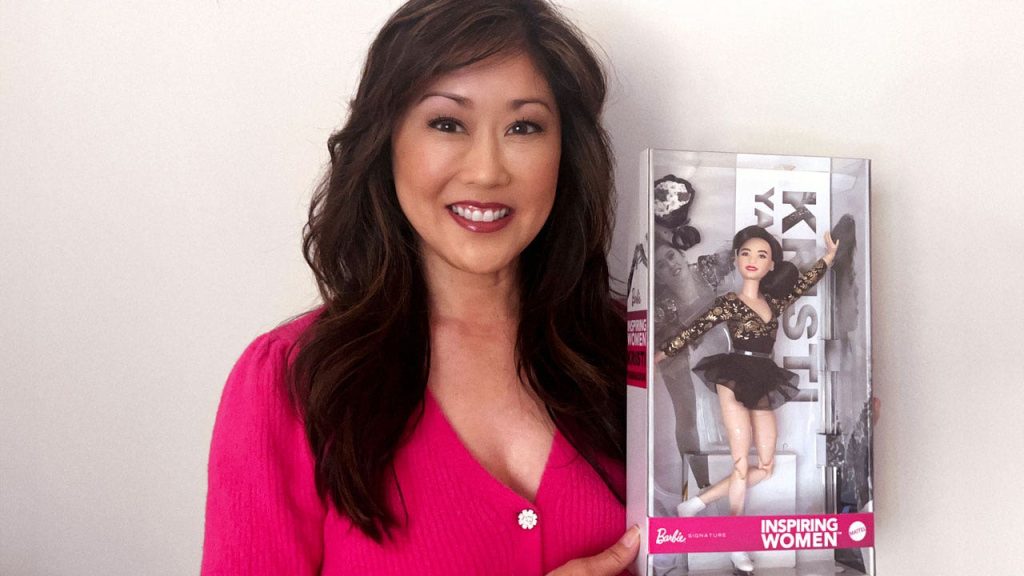Kristi Yamaguchi, a decorated Olympian figure skater, grew up playing with Barbie dolls and now finds it surreal to be honored with a Barbie doll in her likeness. She is proud to be recognized during AAPI Month and is humbled to be included in the same category as women she idolizes, such as Anna May Wong, Maya Angelou, and Rosa Parks. The Barbie doll release is part of Mattel’s “Inspiring Women Series” and coincides with Asian American and Pacific Islander Heritage Month in May. This is not the first time Yamaguchi has been depicted as a doll, but the Barbie version is much more detailed, replicating her outfit and hair accessories from her gold medal winning performance at the 1992 Winter Olympics.
Yamaguchi is thrilled with the accuracy of the doll, noting that it looks just like her with the ’90s style bangs and face shape. Her daughters, who are fans of the recent Barbie movie, were initially shocked and excited to hear about their mother becoming a Barbie doll. Yamaguchi reflects on how when she was growing up in the ’90s, Asian American children did not have access to many dolls that represented them. However, in recent years, there has been a shift with companies like Mattel diversifying and independent entrepreneurs creating Asian dolls that were previously unavailable. Psychologist Sapna Cheryan notes that toys can help dispel stereotypes and show acceptance and inclusivity for all children.
Barbie’s decision to immortalize Yamaguchi as a doll is seen as a positive step in creating role models for Asian American children. Cheryan praises the move, emphasizing the importance of having role models who share the same racial or gender identity. While Mattel has received praise for its diversity efforts, there have been some missteps, such as the lack of an Asian doll in a Tokyo Olympics-themed Barbie line in 2021. Despite these challenges, Yamaguchi’s connection to Barbie is significant given her family’s history as Japanese Americans who were interned during World War II. Yamaguchi herself faced discrimination due to her heritage, with some attributing her lack of endorsement deals to anti-Japanese sentiment in the economic climate of the early ’90s.
For Yamaguchi, being honored with a Barbie doll goes beyond just being a toy. She believes that seeing oneself represented in dolls or through inspirational figures can open up possibilities and inspire children to dream big. Barbie’s longstanding position in American pop culture makes this recognition even more meaningful as Yamaguchi reflects on her journey as an Asian American athlete and the barriers she has overcome. By being celebrated as a Barbie doll during AAPI Month, Yamaguchi hopes to inspire future generations to embrace their identities and pursue their dreams.













